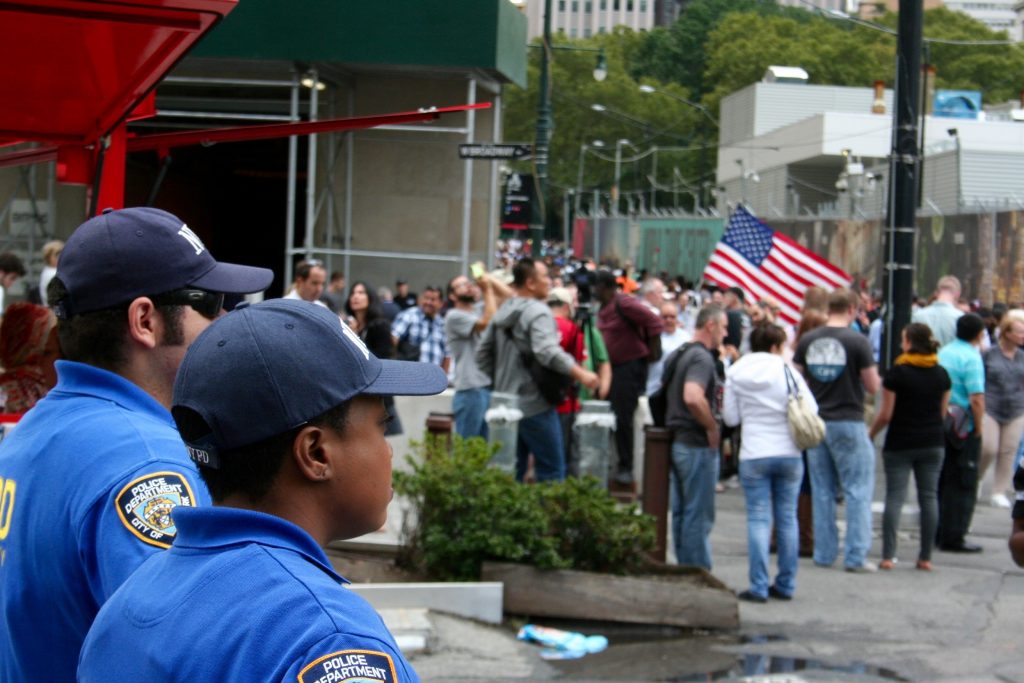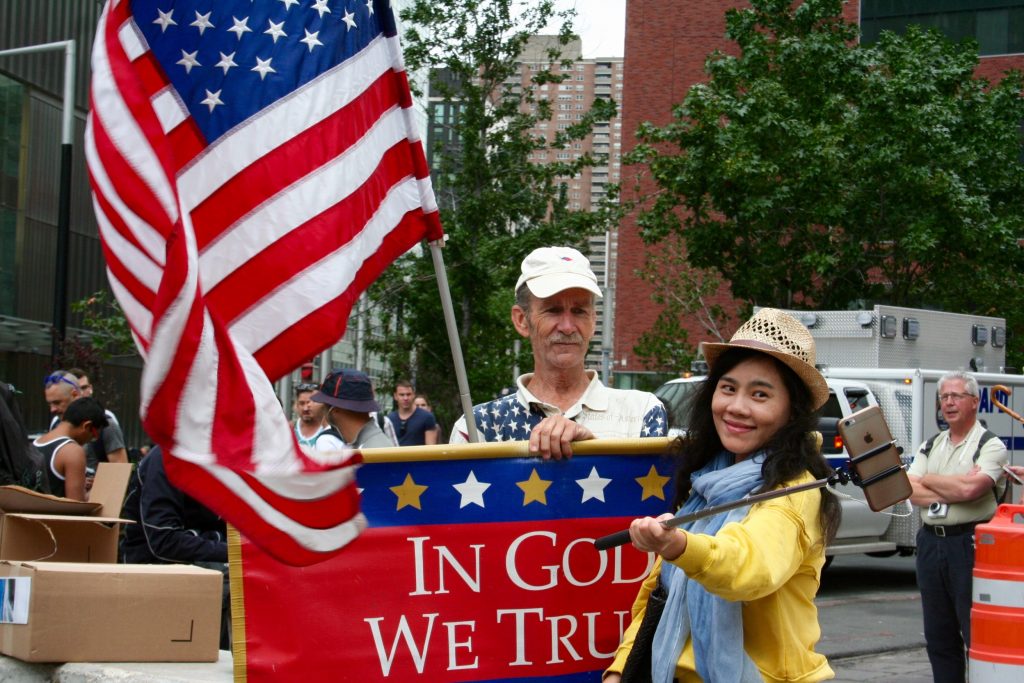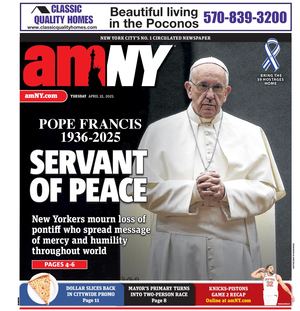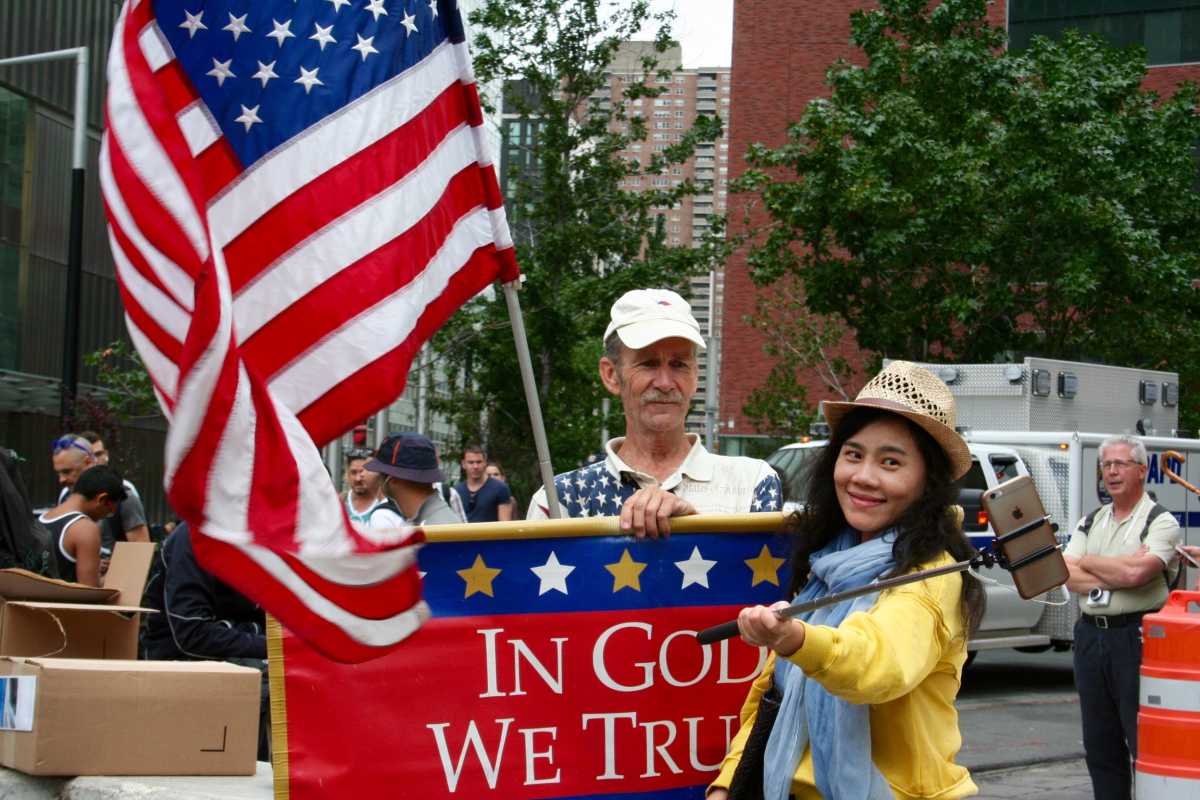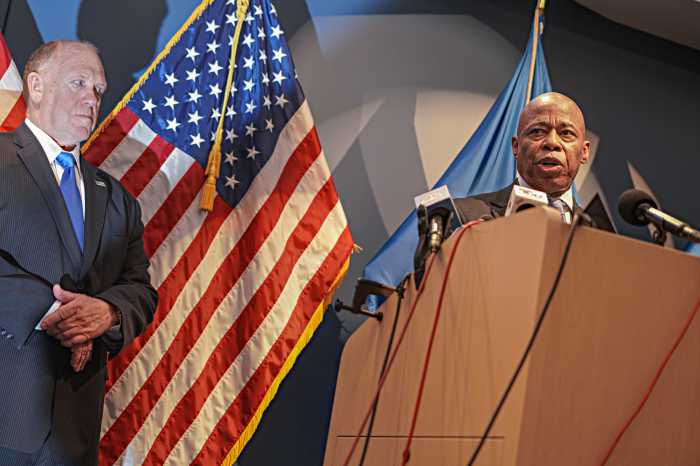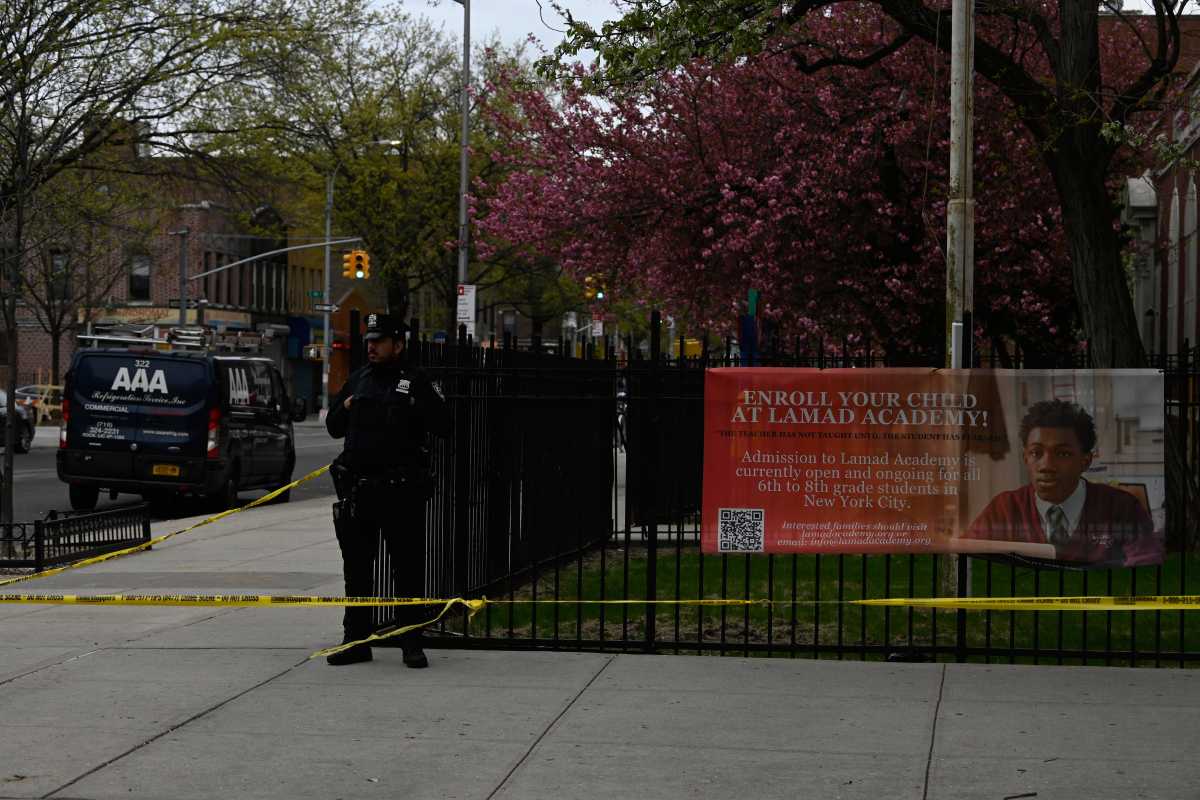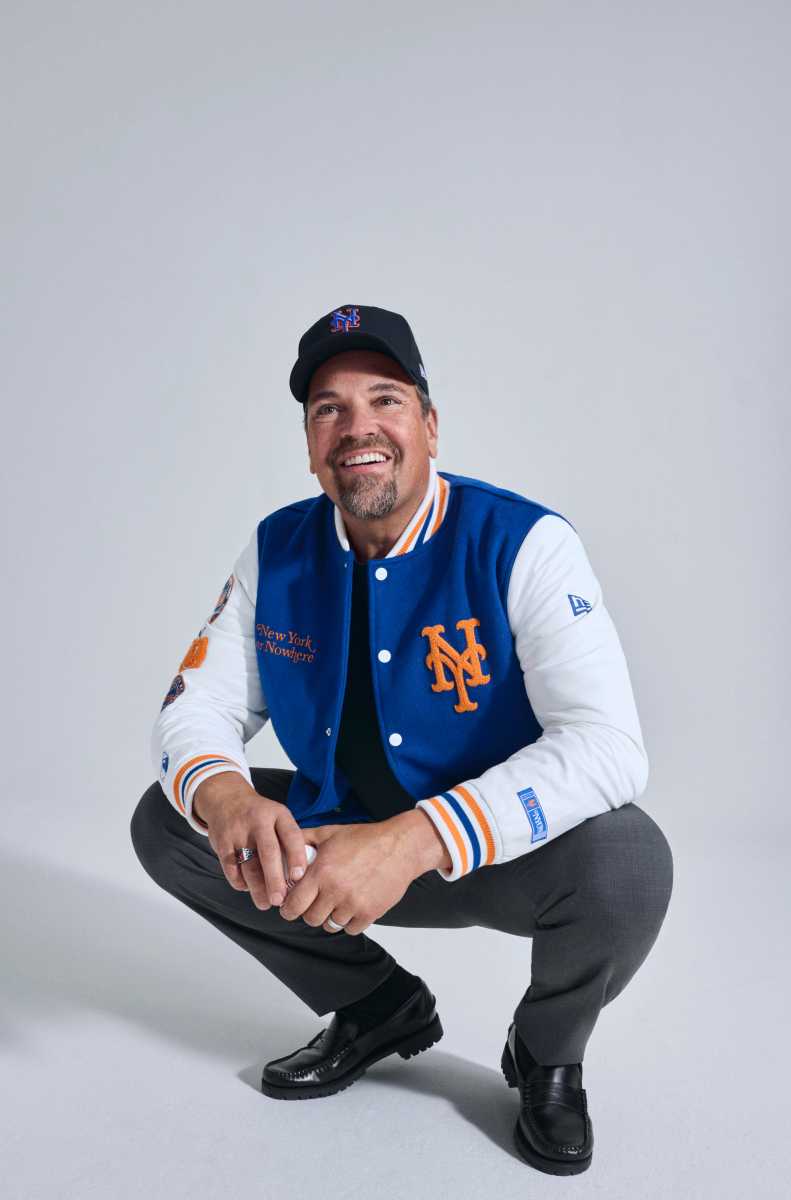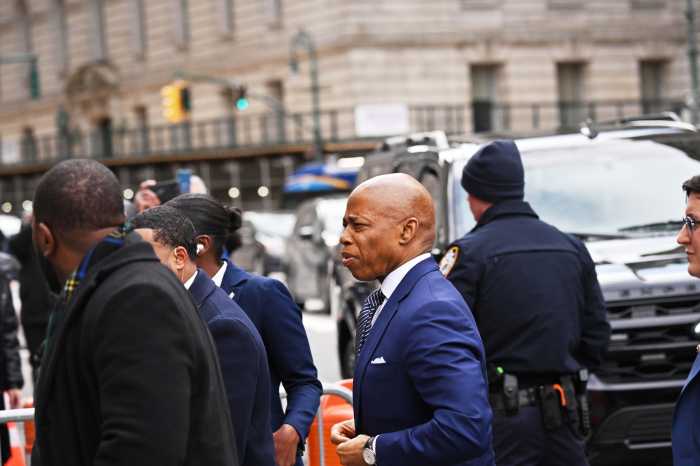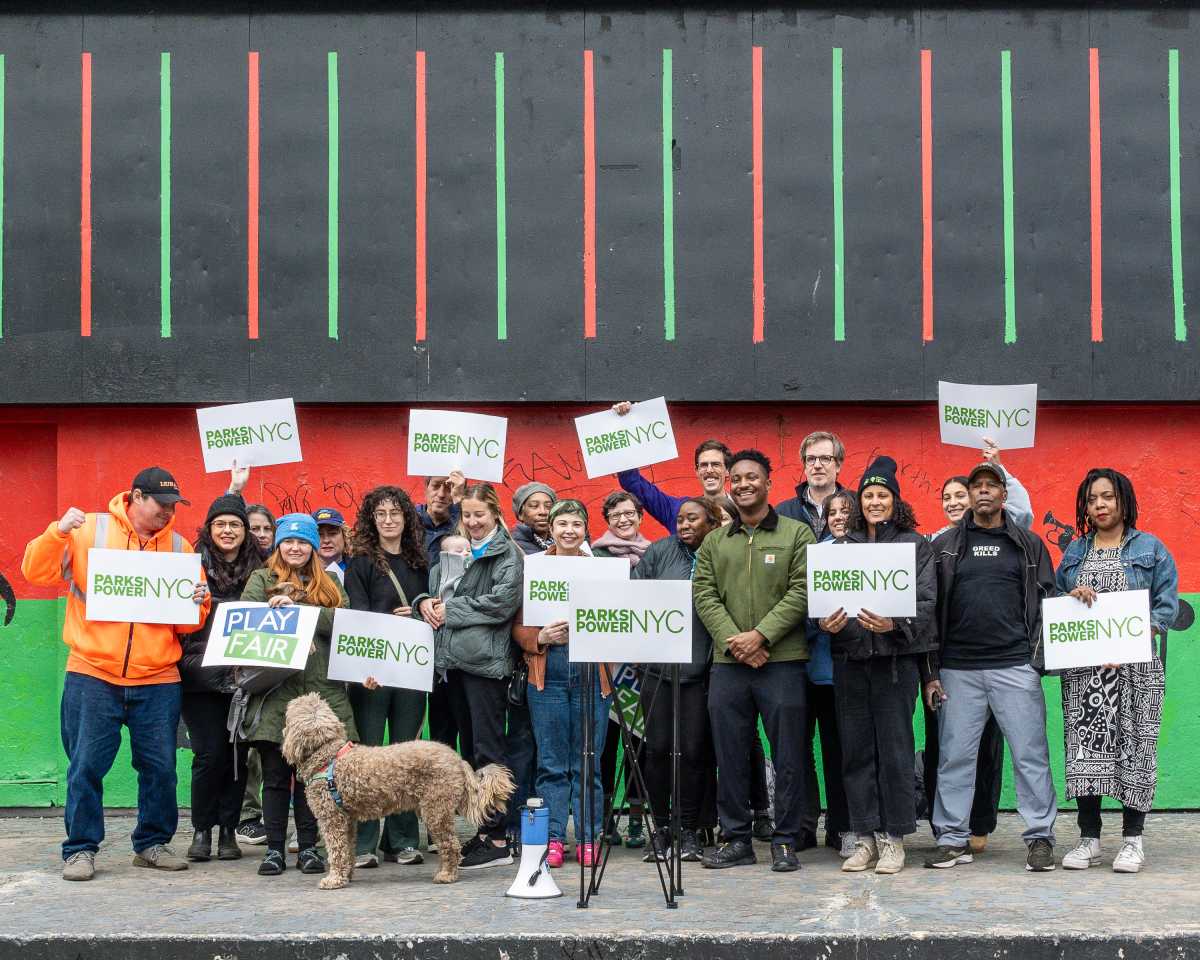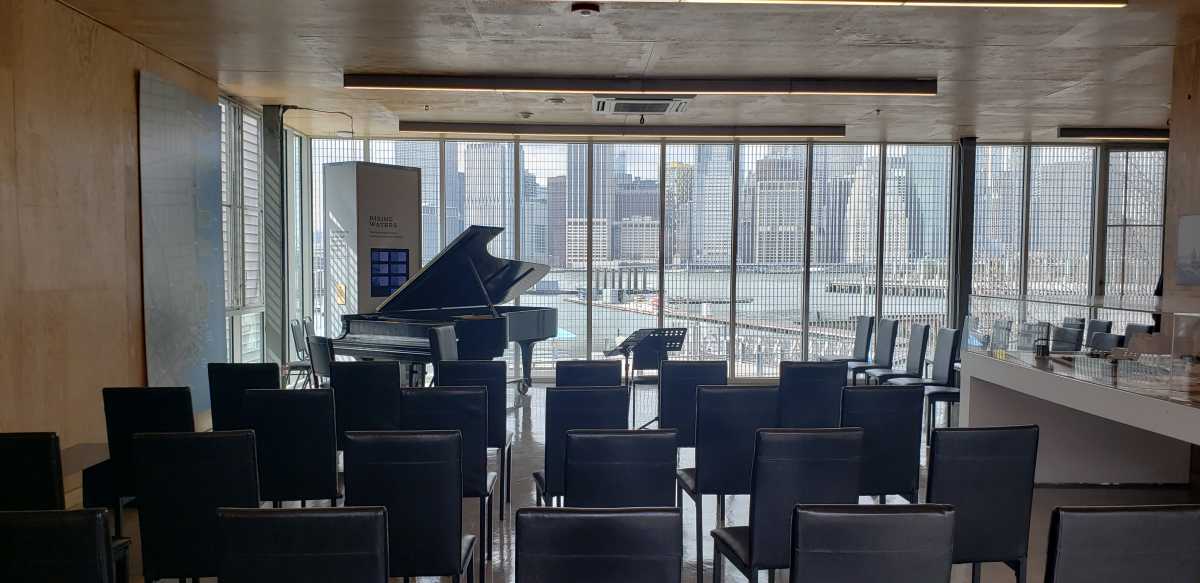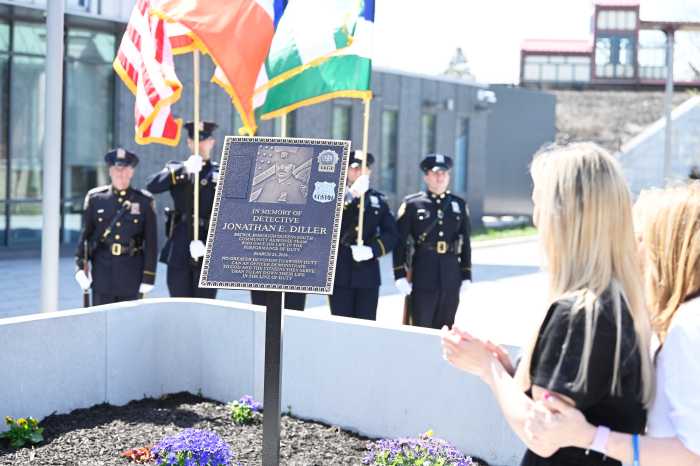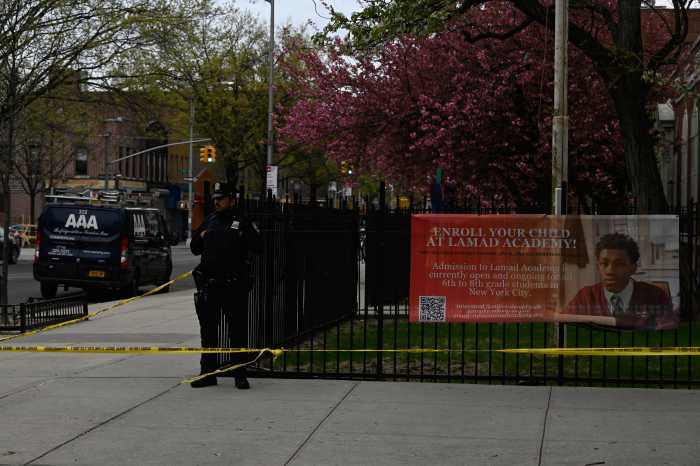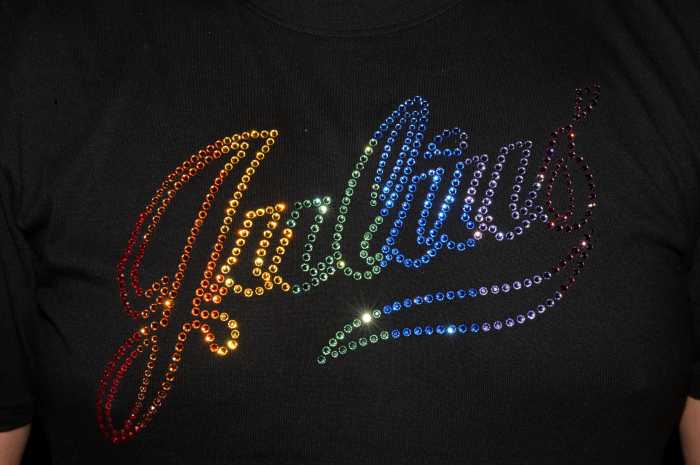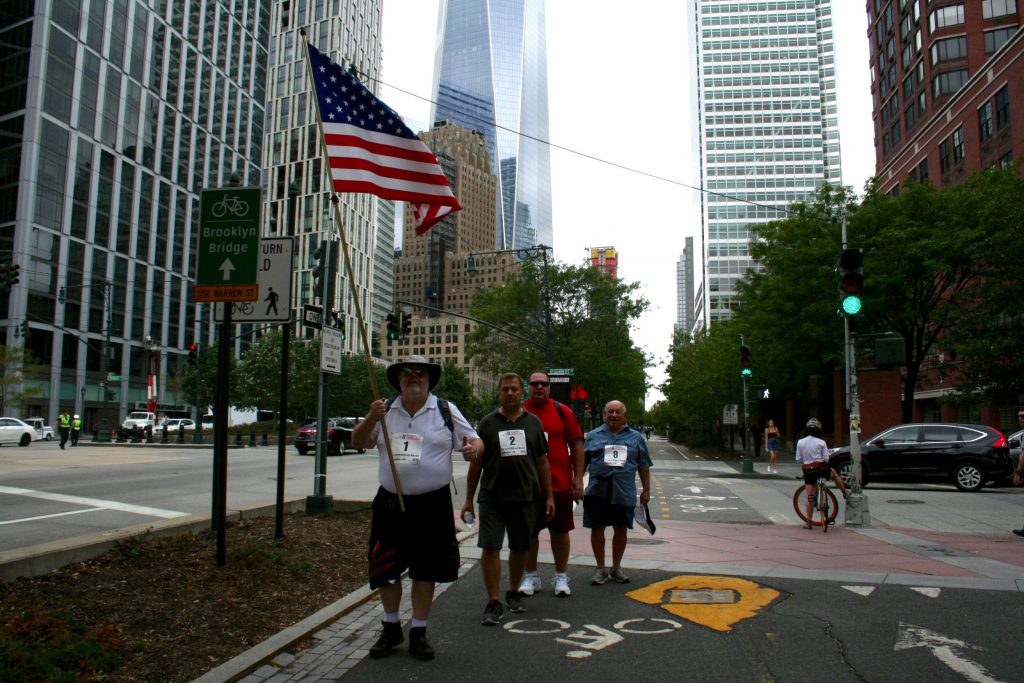
BY YANNIC RACK | On Friday morning, Lower Manhattan was abuzz in its usual rush, with commuters streaming out of the PATH station at the World Trade Center and office workers taking their first cigarette breaks of the day in the 7 W.T.C. plaza.
But the scene was decidedly more sober across the street where, inside the closed-off National September 11 Memorial & Museum, families of victims had begun reading the names of the nearly 3,000 who were killed here 14 years ago. The ceremony followed a moment of silence at 8:46 a.m., the minute the first plane hit the towers.
All around the site, the most telltale sign of the day’s significance were the countless patrol cars and police officers stationed at every corner. But many felt the anniversary’s weight even without such visible reminders.
“The mood today has been very somber compared to the past couple of days. It’s very different,” said Mayank Kalia, 24, who was visiting the city for a four-day business conference from London, his first time in New York.
“People seem to be walking with their heads down. I was just thinking about it, walking past the site. Fourteen years ago…” he added, trailing off. He said he hadn’t seen the memorial up close yet, but wanted to catch a glimpse once the plaza would reopen to the public at 3 p.m.
Kalia wasn’t the only visitor moved by the anniversary. “It is very surreal, regardless of what country you’re from – this is a life-changing thing across the world,” said Michael Young, 50, who was in the city for a charity motorcycle ride from New York to Los Angeles that leaves on Sunday.
Standing at the corner of Vesey and West Sts., by the Hudson River bike path, Young said he works for emergency services in his native Australia and felt especially affected by the responders who had died in the attack.
“The guys and girls that died here reflect every emergency service worker across the world,” he said.
Further into Battery Park City, Warren, 61, who didn’t want to give his last name, was taking his own moment to reflect before catching a ferry from the nearby World Financial Center Terminal.
He was standing near the water, with his hands folded in front of him and looking up at One World Trade Center looming over the neighborhood.
“It’s a bit of a difficult day,” he said afterwards, adding that he was visiting from California to witness the anniversary and visit family. Originally from Brooklyn, he moved to the West Coast in 2000 but was nevertheless involved in the events of Sept. 11, albeit indirectly.
“I was working for one of the major airlines that was involved,” he said. “As a matter of fact, I was on shift, and I happened to be in maintenance control. We had taken a call from one of the aircraft [that hit the Twin Towers], a flight attendant on the plane. They explained that they had been hijacked, but there was not much we could offer them by way of response. The standard protocol back then was pretty much to just let them have their way.
“It was just a tough one. Friends of friends were inside the building and they’re no longer here. It was important to me to come back. I had visited three or four times since then, but never on this date,” he added.
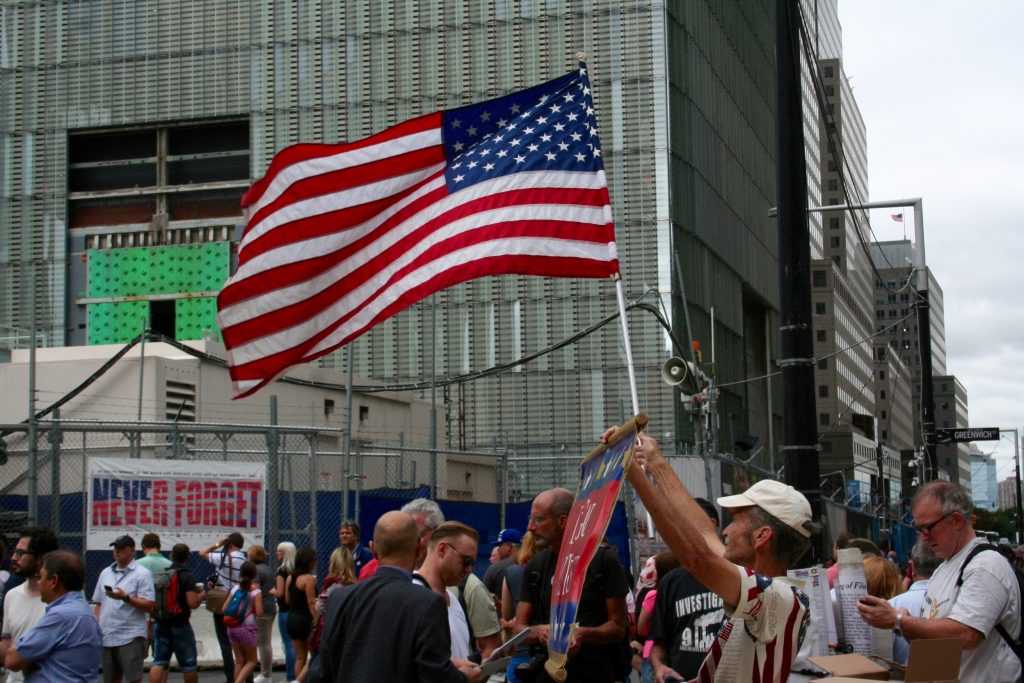
Cindy Pound, 46, also vividly remembered the day of the attack, when she spent the morning at a dog park off the West Side Highway on Chelsea.
“To be honest, yesterday I was reminiscing a lot about it, and this morning I forgot, when I first woke up,” she said, sitting on a bench behind the elevated park of the Irish Hunger Memorial in Battery Park City. “But I got a text message from a friend; he was the first person I spoke with on that day.”
Pound has lived in the neighborhood for eight years and said that Lower Manhattan had already “picked back up” by the time she moved in.
“I watched the entire tower be built, which was meaningful. I’m just glad people remember and I’m really proud of the recovery progress that has been made. I think the city has done a great job in balancing remembrance with moving forward.”
More than a few of the residents in Lower Manhattan nowadays didn’t experience the area before or immediately after the attack, and therefore are mostly left to appreciate its rejuvenation.
Jacqueline Barker, 38, who was pushing her 15-month-year-old daughter in a stroller through Rockefeller Park, is one of them – she moved to Battery Park City from Florida one year ago.
But she said it was important to her that her two older children, six and eight years old, learn about the neighborhood’s legacy.
“They’re very keenly aware of it,” she said. “It’s taught in school a lot, and living down here and walking past the memorial each day… they know a lot of people who were here on that day, parents of friends. So it’s always a quiet morning, but we talk about it. I think you need to be aware of the space and the community that you live in. It’s a defining event.”
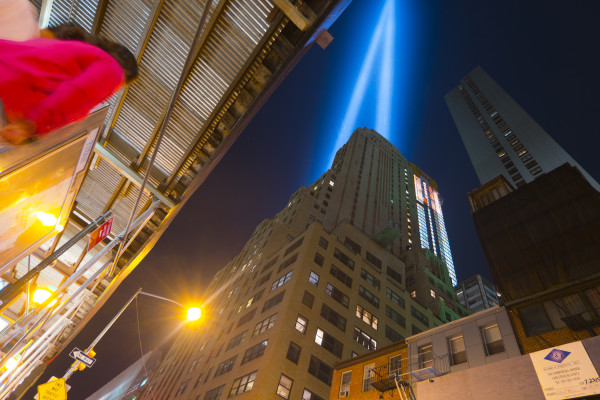
Not far from the park, on the bikeway/walkway, a group of four men was making their way uptown. Led by Arthur Regan, 52, who was carrying a flag pole roughly ten feet long, the procession was the 14th annual “New York Will Never Forget” walk-a-thon, a memorial walk from the Battery all the way to Central Park.
Despite the fact that only three people had shown up this year, Regan, who lost his offices at 90 West St. on 9/11, was in good spirits.
“It’s a business day and people have lots of different things they’re doing,” he said. “Every year is a different number. I think for different people it starts, for others it subsides. But New York will never forget.”
